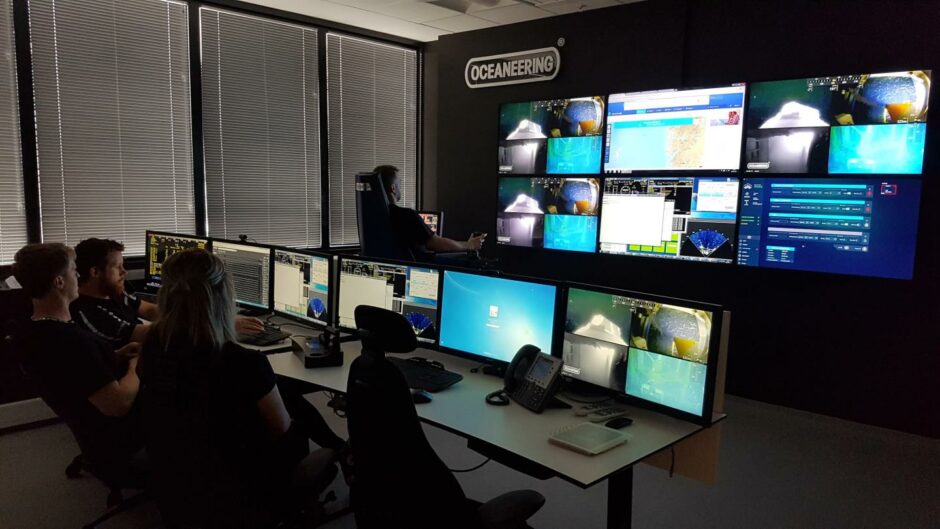
Oceaneering has pioneered the UK’s first onshore remote piloting ROV operation, monitoring drilling operations at BP’s Clair Ridge during summer 2021.
Oceaneering International has successfully conducted the first onshore remote piloting of a remotely operated vehicle (ROV) in the UK North Sea, undertaking an observation mission for drilling operations at the operator’s Clair Ridge facility.
The operation ran at the west of Shetland asset from 20 July to 5 August 2021, with ROVs working at 141metres of water depth.
Piloting operations were conducted from Oceaneering’s onshore remote operations centre (OROC) in Stavanger, Norway – also marking the first cross-border implementation in the UK, and the first operational implementation for BP.
Oceaneering said remote piloting from shore can help increase safety and reduce the environmental footprint of operations, potentially achieving up to 25% reduction in offshore personnel on board (POB) and provide a significant reduction in emissions associated with the work.
Oceaneering and BP worked together to ensure secure offshore connectivity for the remote ROV piloting operations, requiring a “complex setup process” to establish a bridge between the data networks of both companies, without compromising respective cyber security policies.
The result of this work was to establish a secure data link via subsea optical fibre to the worksite offshore.
The Stavanger-based remote piloting team operated the ROV for over 70 hours during the campaign program with 100% uptime, with a global support team comprised members from the UK, Norway, India, and the US.
“The operation was a successful demonstration of not only new technology, but a demonstration of continued resilience and protection of the offshore workforce during COVID-19,” commented Oceaneering SVP of subsea robotics Martin McDonald.
BP North Sea VP of wells, Tom Fuller, noted that the use of the solution at Clair Ridge “builds increased credibility and familiarity” of remote ROV operations.
“It’s also a great example of how remote technologies can deliver emissions reductions on our assets, aligning with BP’s ambition to be a net zero company by 2050 or sooner. This project has helped BP to better understand the benefits and challenges of implementing remotely piloted ROVs – learnings that we can take forward into future opportunities here and across our global operations,” he added.
Recommended for you
